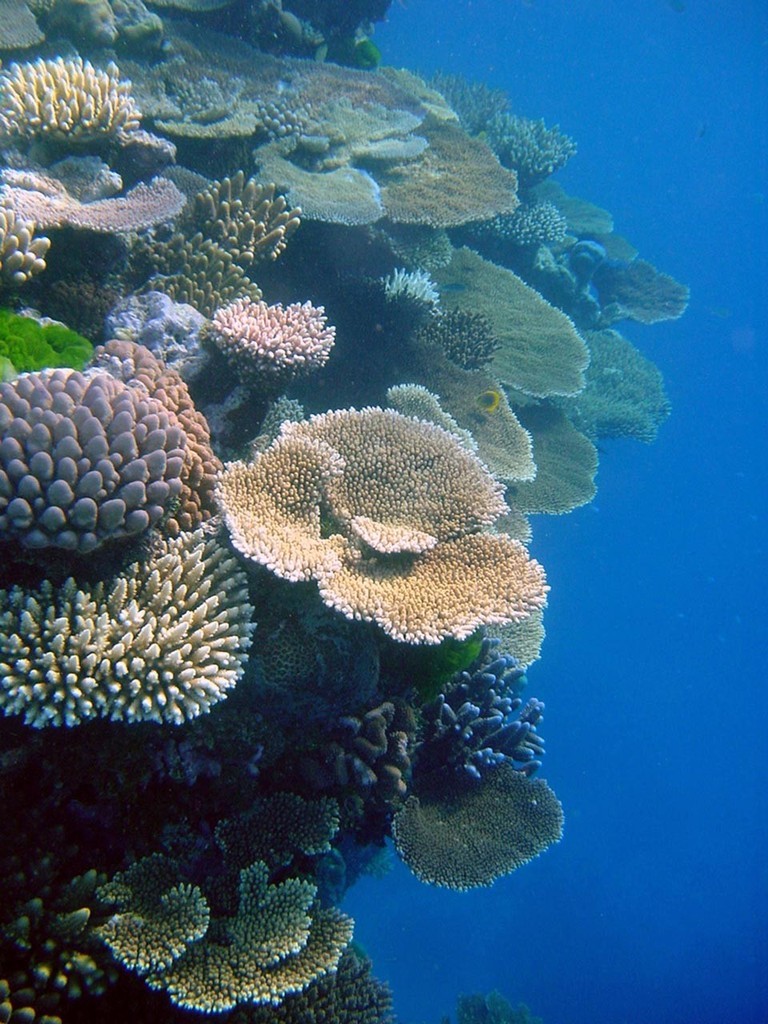Avoiding 'catastrophe' for world's coral heartland
by ARC Centre of Excellence for Coral Reef Studies on 15 May 2009

Helix Reef, Great Barrier Reef ARC Centre of Excellence Coral Reef Studies
http://www.coralcoe.org.au/
A region harbouring more than half the world’s coral reefs is at risk of 'a major environmental and human catastrophe' a report released by the Worldwide Fund for Nature (WWF) at the World Ocean Conference in Manado, Indonesia, today has warned.
The report entitled 'The Coral Triangle and Climate Change: Ecosystems, People and Societies at Risk' was compiled from the research of 20 of the world’s leading coral reef scientists and proposes nine measures for action which it describes as urgent.
Its release coincides with the decision of the six Coral Triangle nations – Indonesia, the Philippines, Malaysia, Papua New Guinea, East Timor and the Solomon Islands – to move ahead with the world’s largest transboundary network of marine protected areas.
Professor Terry Hughes from James Cook University, Director of the Australian Research Council Centre of Excellence for Coral Reef Studies (CoECRS), says: 'The Coral Triangle Initiative recognizes that the status quo is not an option for the future. All countries are seeking to radically improve how coral reefs are managed, so that these critical natural resources can sustain future human development'.
The Coral Triangle covers 1 per cent of the earth's surface yet contains the richest marine ecosystems on the planet. It is home to 53 per cent of the world's coral reefs, including over 80 per cent of all reef-building coral species and at least 3000 species of fish. It is the world epicentre for the biodiversity of not only corals and fish, but many other marine organisms.
At the same time it supports more than 100 million people working as fishers, foragers, in tourism and other marine based industries. Its reefs and mangroves help cleanse water and protect coastal regions from storm damage.
'Coastal ecosystems throughout the Coral Triangle are being severely threatened by the activities of humans,' the WWF study says 'These (include) local threats such as destructive fishing, deteriorating water quality, over-exploitation of key marine species, and the direct devastation of coastal ecosystems through unsustainable coastal development.
Contributing author to the Report, Professor Garry Russ of the ARC Centre of Excellence for Coral Reef Studies says: 'There is clear evidence that no-take areas, supported by local communities, are powerful tools for re-building depleted fish stocks. In the Philippines for example, community-based no-take areas support a lucrative tourism industry, and provide an alternative source of employment for fishers.'
'Healthy ecosystems support vibrant fisheries, while fish in turn support the functioning of the entire ecosystem. Remove too many fish, especially those that control blooms of seaweed, and the entire ecosystem is more vulnerable to threats such as climate change,' says Professor Hughes today in Manado.
The nine urgent measures proposed by the WWF report include:
* Taking urgent steps to reverse the decline in health of coastal ecosystems
* Reviewing the adequacy of local and national conservation measures in the light of climate change
* Taking greater steps to engage coastal communities and stakeholders in protecting their reefs
* Building the capacity of reef managers to implement necessary changes in reef and fisheries management.
Another contributor to the WWF report, CoECRS researcher Dr Josh Cinner, adds: 'Fisheries managers need a diverse toolbox to meet the new challenges of climate change. Managing how fishers fish, the gear they use, can make a huge difference to the health of the coral ecosystem.'
'For example, we found that spearguns remove far more ecologically important fish, such as herbivores that keep coral reefs clean of seaweed, than do nets. Regulating the type of gear used can make a big ecological difference, while still enabling local fishing communities to sustainably harvest their local resources.'
More information: http://www.coralcoe.org.au
If you want to link to this article then please use this URL: www.sail-world.com/56781